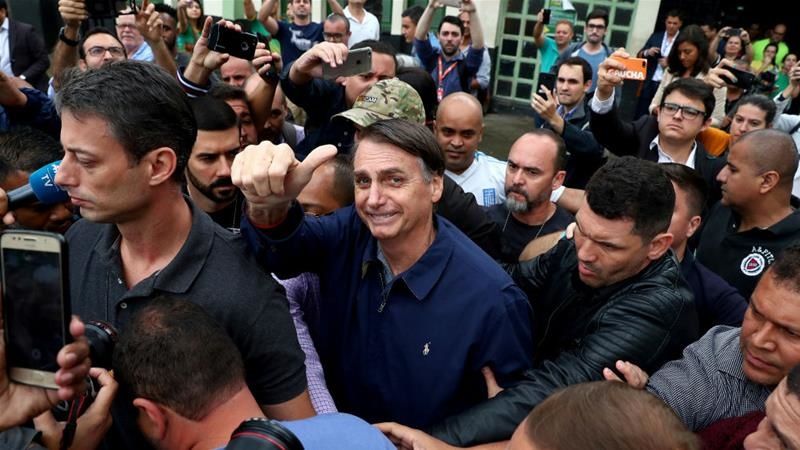Willis' big story of 2018: "Throw the bums out."
- Germany struggled to form a government as support for its dominant parties continued to slide, and then the ruling party nudged Chancellor Angela Merkel toward the exit.
- Italy voted into power a protest party founded in 2009 by a comedian and a rebranded separatist party.
- Mexico elected its first leftist president in eight decades, a man leading a party he created just four years ago.
- Brazil elected a far-right former army officer to tackle crime and corruption.
- Pakistan pushed aside the Bhutto and Sharif political dynasties to elect a charismatic former cricketer leading his own party.
- Sweden's dominant center-left party drew its lowest vote share in 100 years. Three months after elections, Sweden closes 2018 without a government.
There's nothing new about incumbents losing elections, and the sources of anger that prompt demands for change vary widely from one place to another. But 2018 saw establishment parties of all kinds, entrenched for decades, tossed off a cliff in favor of wildcard candidates.
His big question for 2019: What happens if leaders elected to bring sweeping change fail to deliver?
France had no national elections this year, but the reformist President Emmanuel Macron's 23 percent approval rating and recent nationwide protests signal the French public isn't happy with the country's direction. The upheaval began with an announced increase in fuel taxes, but fast-expanding demonstrations quickly exposed broader grievances.
Just as Britain's leaders struggle to deliver Brexit and Donald Trump's approval ratings stand at 38 percent, those elected this year on extravagant promises of change face formidable odds against delivering anytime soon. We've learned over the past decade that public protests and their impact are nearly impossible to forecast. What begins as anger over bus fare increases in Sao Paulo or commercial real estate development in Istanbul or land requisition outside Addis Ababa can quickly form the eye of a powerful political storm.
Change will always be easier to promise than to deliver, and public anger may continue to build.
